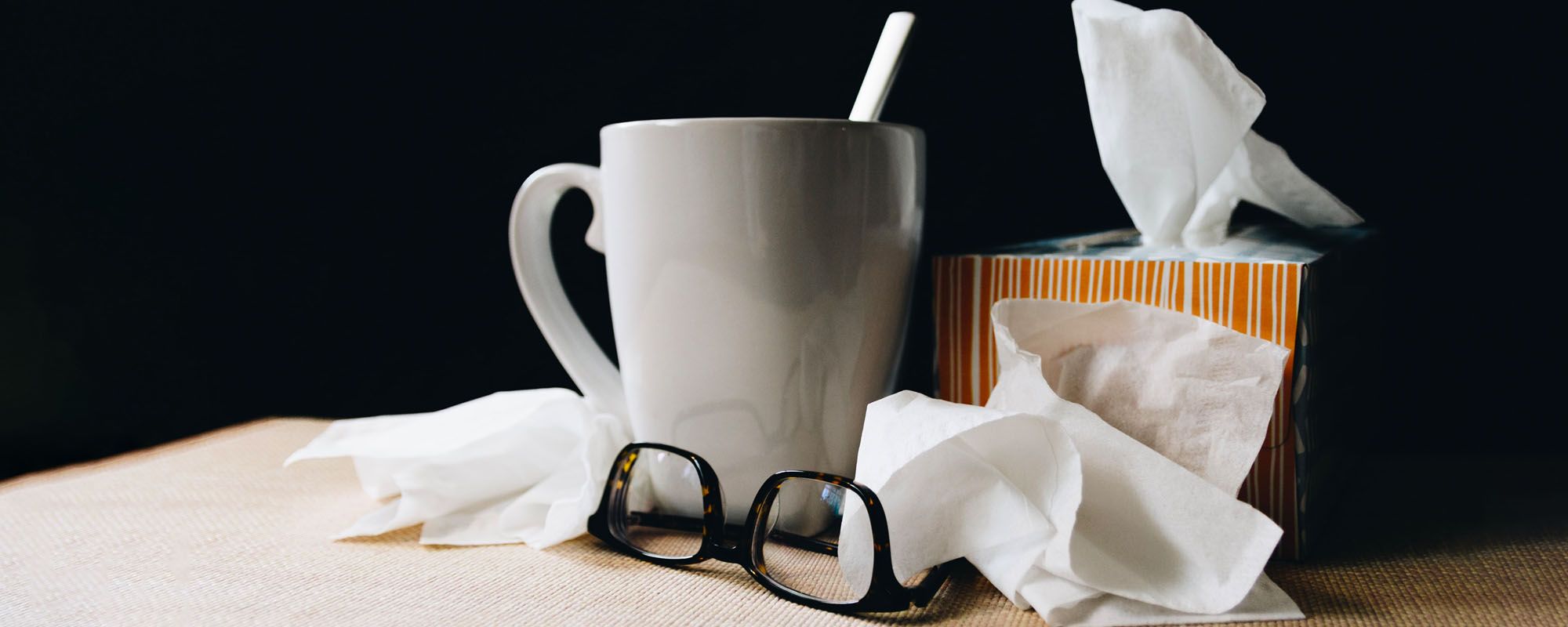
Ah-choo! Allergy Season Is Here!
Yes, it’s that time — spring is in the air, and unfortunately, so are tree pollen and mold spores.
Beginning in March, hay fever, which is an allergy to pollen or mold, affects 30 to 60 million people in the U.S.
Trees cause allergies because they produce small pollen grains that are light and dry and can be carried far by the spring breeze. Similarly, mold releases spores that are also carried by the wind. They’re abundant in the air, and mold allergy sufferers experience the height of symptoms from spring through fall.
Rain washes allergens away, but thunderstorms don’t have the same effect. The Asthma and Allergy Foundation of America (AAFA) says that severe weather, most common during the spring and summer, can pick up and swirl pollen around.
The following provides an overview of what you need to know about seasonal allergies.
Symptoms
- Itchy nose, mouth, eyes, throat, skin, or any other body part
- Difficulty with smell
- Runny nose
- Sneezing
- Watery eyes
Other symptoms may develop later, including:
- Stuffy nose
- Coughing
- Clogged ears and reduced ability to smell
- Sore throat
- Dark circles or puffiness under the eyes
- Sleep disturbances that lead to fatigue and irritability
- Headache
Triggers
If you suspect you have allergies, record your symptoms and suspected triggers, and provide this information to your doctor.
According to the American Academy of Allergy, Asthma & Immunology, when you have allergies, your immune system mistakenly identifies a typically harmless substance as an intruder — an allergen. The immune system responds to the allergen by releasing histamine and chemical mediators that typically cause symptoms in the nose, throat, eyes, ears, skin, and roof of the mouth.
Stress can make your allergy symptoms worse. Data shows that stress spikes in the springtime. Stress increases the amount of histamine in your bloodstream, contributing to allergy symptoms. Doctors at Harvard Medical School also say that stress intensifies how bothered you are by coughing, sneezing, and runny nose.
In women, allergy symptoms spike during PMS and pregnancy. Higher levels of hormones can make itchy eyes and other spring allergy symptoms worse, according to physicians at Penn Medicine.
However, there is some good news. Allergies tend to decline as you grow older. With age, your immune system produces less IgE, which decreases your symptoms.
Treatments
AAFA suggests the following treatments for allergies:
- Nasal corticosteroids are nose sprays. They reduce swelling. Swelling causes a stuffy, runny, and itchy nose. They are the most effective medicines for nasal allergies.
- Antihistamines block histamine, a trigger of allergic swelling. They can calm sneezing, itching, runny nose, and hives.
- Mast cell stabilizers keep your body from releasing histamine. This can help with itchy, watery eyes or an itchy, runny nose.
- Decongestants reduce stuffiness by shrinking swollen membranes in the nose. But be careful. Using these sprays more than three days in a row may cause the swelling and stuffiness to get worse.
- Oral corticosteroids may be prescribed to reduce swelling and stop severe allergic reactions. However, these medicines can cause serious side effects. Expect your doctor to carefully monitor you while taking it.
Management
- Stay indoors on dry, windy days. The best time to go outside is after a good rain.
- Delegate lawn mowing and other gardening chores that stir up allergens.
- Remove clothes you’ve worn outside. Shower to rinse pollen from your skin and hair.
- Wear a pollen mask if you do outside chores.
- Use the air conditioning in your house and car.
- If you have forced-air heating or air conditioning in your house, use high-efficiency filters and follow regular maintenance schedules.
- Keep indoor air dry with a dehumidifier.
- Use a portable high-efficiency particulate air (HEPA) filter in your bedroom.
Allergies vs. COVID — How to Tell the Difference
Distinguishing between allergies and COVID-19 can be difficult as they share some of these symptoms:
- Runny nose
- Congestion
- Cough
- Headache
- Fatigue
- Sore throat
However, even with overlapping symptoms, there are some ways to distinguish allergies from COVID-19.
With allergies, nasal discharge tends to be clear, and fatigue is mild. On the other hand, viral infections tend to produce thicker nasal secretions, and fatigue with COVID-19 may be more intense.
Allergy coughs often result from irritation and discharge. As such, they are “wet” and productive. With COVID-19, the cough is dry.
The biggest differentiator is if you’re experiencing a lot of itchiness symptoms, it’s likely an allergy and not COVID-19.
Hopefully, this overview offers guidance on how to manage your allergies, so you can leave the Kleenex behind!
Research and materials for this article were compiled, written, and distributed on behalf of the National Public Health Information Coalition. The views and opinions expressed in this blog are those of the various authors and do not necessarily reflect the official policy or position of the National Public Health Information Coalition or its members.
References:
Asthma and Allergy Foundation of America | AAFA | Home
https://www.everydayhealth.com/allergies/symptoms/
Stress and Allergic Diseases (nih.gov)
Is stress making your allergy symptoms worse? - Harvard Health
8 Facts about Seasonal Allergies - Penn Medicine
The Age Impact on Serum Total and Allergen-Specific IgE (nih.gov)
Is It Allergies or COVID-19? (webmd.com)
https://midlandscbd.com/articles/spring-allergies-6-surprising-facts-you-might-not-know
Is It Allergies or COVID-19? (webmd.com)
Allergies or COVID-19: What Are the Differences? (verywellhealth.com)
https://www.webmd.com/lung/news/20200417/is-it-allergies-or-covid-19

